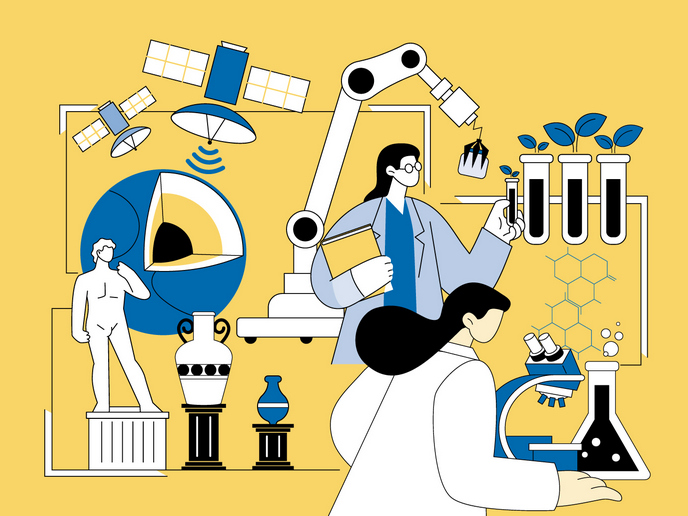Research infrastructures are critical for science today. In order to tackle complex and global issues such as climate change, biodiversity changes, advanced medicine, energy production and the transition to carbon neutrality, researchers across Europe need access to world-leading resources.
Research infrastructures exist to provide scientists, researchers and innovators with the necessary equipment, services and facilities to conduct excellent research. They can be physical hardware such as synchrotrons and remote sensing satellites or offshore sensors, reference collections such as biobanks and sociocultural archives, computing systems and communications networks, or virtual services such as cloud data tools.
The European Commission, EU Member States and countries associated with the Horizon Europe programme aim to consolidate and develop the landscape of world-class sustainable research infrastructures in Europe.
The objectives include to open, integrate and interconnect research infrastructures, reducing fragmentation and avoiding duplication, exploiting the innovation potential of research infrastructures, and reinforcing international cooperation.
The concept of access to European research infrastructures emphasises open collaboration, interdisciplinary research and international engagement. These factors contribute to the advancement of knowledge and innovation, and the development of solutions to societal challenges.
By investing in research infrastructures, Europe is helping to attract and retain top researchers from around the world, providing them with the opportunity to pursue their work at an advanced level.
By encouraging better data management and sharing practices, research infrastructures also support evidence-based policymaking, putting Europe in a better position to address important societal challenges.
Investing in research, innovation and economic growth
Investing in research infrastructures enables scientists in Europe and beyond to explore new ideas and promote interdisciplinary collaborations, helping to create growth and jobs, and tackle our societal challenges.
These activities are supported by the European Strategy Forum on Research Infrastructures (ESFRI), responsible for developing and updating a strategic European roadmap for research infrastructures, and the European Research Infrastructure Consortium (ERIC) Committee and Forum, to facilitate the establishment and overseeing of ERICs.
Within the Horizon Europe Research Infrastructures part, an objective relates to the development of the European Open Science Cloud (EOSC), aimed at ensuring that open science policies, practices and skills become the ‘new normal’ across the European Research Area, and enabling Europe’s contribution to a web of findable, accessible, interoperable and reusable (FAIR) data and services.
All these efforts are contributing to placing the European Research Area in a leading position, curating an innovation-friendly ecosystem that promotes interdisciplinary science and attracts talent from all over the world as well as fostering European internal researchers mobility.
Investing in research infrastructure is crucial for Europe, and holds positive implications for scientific progress, economic growth, innovation and societal development, while contributing to the EU efforts towards the digital and green transitions and to the EU response to crises. The 13 Horizon Europe projects included in this Pack showcase the broad benefits advanced infrastructures have to offer, delivering groundbreaking science from the deep ocean to the high sky.
National research initiatives spearheaded by the NI4OS-Europe project aim to unify Europe’s open science landscape, while EOSC4Cancer is ensuring that cancer data is accessible across borders. By collecting and sharing data on COVID-19 and other infectious diseases, EVA-GLOBAL and BY-COVID are helping decision makers better prepare for future pandemics.
The INSPIRE collaboration network is helping Europe maintain its competitive edge within the rapidly developing field of proton beam therapy, while the ARIES project is finding ways to make particle accelerators more compact and energy-efficient. Meanwhile, PRISMAP is improving the availability of medical isotopes across Europe.
Through autonomous sea probes, the Euro-Argo RISE project is helping scientists to build more accurate weather models, while INTERACT is supporting international cooperation in the polar region. The OCRE project facilitated adoption of cloud services and access to Earth Observation data, and by providing Earth science researchers with access to technology and data, the EXCITE project is helping to address fundamental questions relating to our planet.
And while ARIADNEplus is helping archaeologists delve into our past, EPN-2024-RI is helping scientists prepare for extraterrestrial missions of the future.

